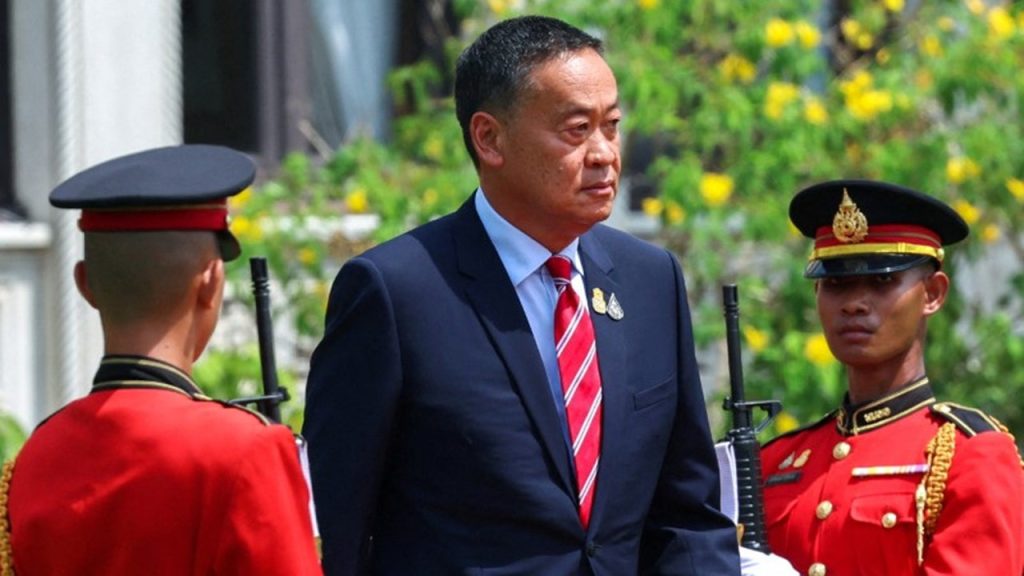Thailand’s Constitutional Court dismissed Prime Minister Srettha Thavisin due to ethics violations, sparking political upheaval with his removal just under a year after taking office. This marks the fourth time in 16 years that a premier has been removed by the court, highlighting the significant role of Thailand’s judiciary in the country’s long-standing political crisis. Srettha’s exit means that parliament must select a new prime minister, potentially leading to further uncertainty in a nation plagued by coups and judicial rulings that have toppled numerous governments and political parties.
The ruling coalition, led by Srettha’s Pheu Thai Party, quickly moved to select a new prime minister candidate following his dismissal. This alliance has faced continued challenges due to Thailand’s persistent political turmoil, with two previous governments being ousted by coups in a longstanding power struggle between the Shinawatra family, founders of the Pheu Thai Party, and their conservative and military opponents. The court’s decision to remove Srettha was based on allegations of ethical misconduct, with the judges citing his lack of honesty and failure to uphold ethical standards in his role as prime minister.
These recent legal developments come at a fragile moment for Thailand’s economy, which has struggled under Srettha’s leadership to address mounting challenges such as weak exports, high household debt, and limited access to loans for businesses. The court’s ruling has added an element of uncertainty to the economic outlook, potentially stalling key policies and contributing to a slowdown in consumer and business confidence. With growth projections already falling behind regional peers and the stock market experiencing volatility, the country faces additional obstacles as it navigates political transition and recalibrates its policy agenda.
Srettha expressed disappointment at the court’s decision and raised the possibility that the next government could alter his policy agenda. His removal as prime minister poses a threat to the fragile peace that existed between political heavyweight Thaksin Shinawatra and his opponents within the country’s elite and military establishment. The appointment of Thaksin’s former lawyer to cabinet was a key factor in Srettha’s downfall, sparking a complaint from former senators appointed following a 2014 coup against Pheu Thai’s last government. Srettha’s deputy takes over as caretaker premier, and the United States reaffirmed its commitment to its alliance with Thailand amidst the political transition.
The political landscape remains uncertain as Thailand navigates the selection of a new prime minister and potential shifts in government leadership. Pheu Thai, as the largest party in the coalition, is expected to play a key role in determining the next administration. While the coalition remains intact for now, the process of nominating a new leader and forming a government may involve a range of potential candidates, including party stalwarts, inexperienced leaders, and royalist figures with military backgrounds. As Thailand moves forward with this political transition, the country faces challenges both domestically and internationally, underscoring the importance of stability and effective governance in the months ahead.


